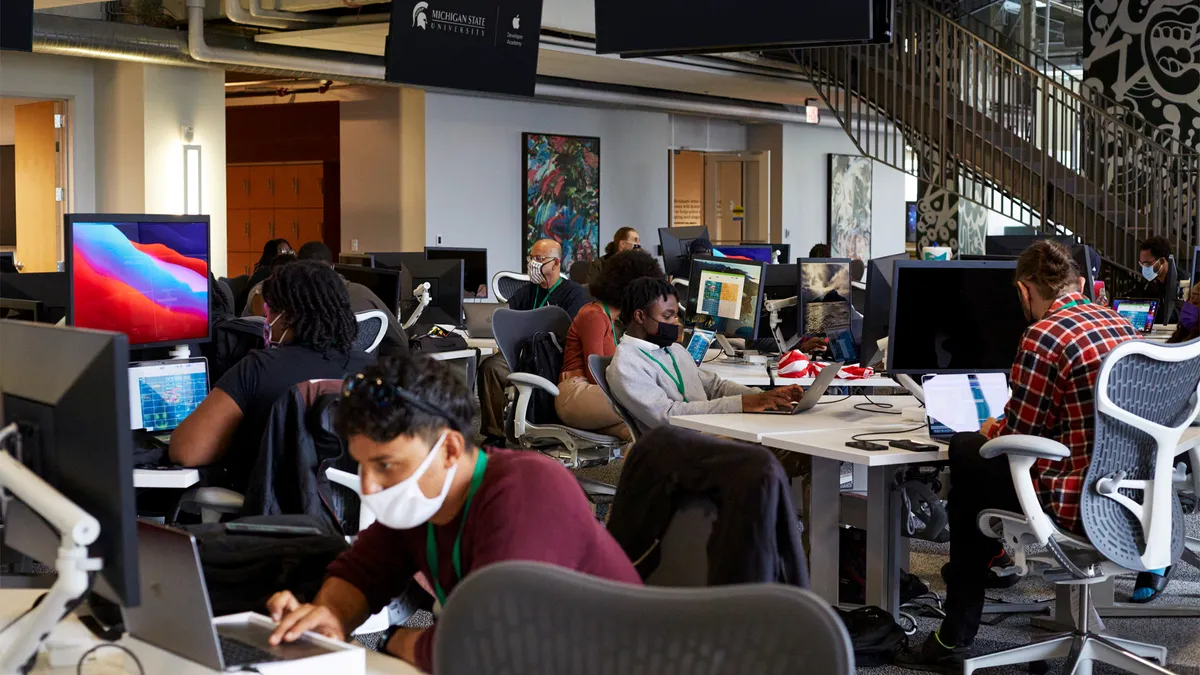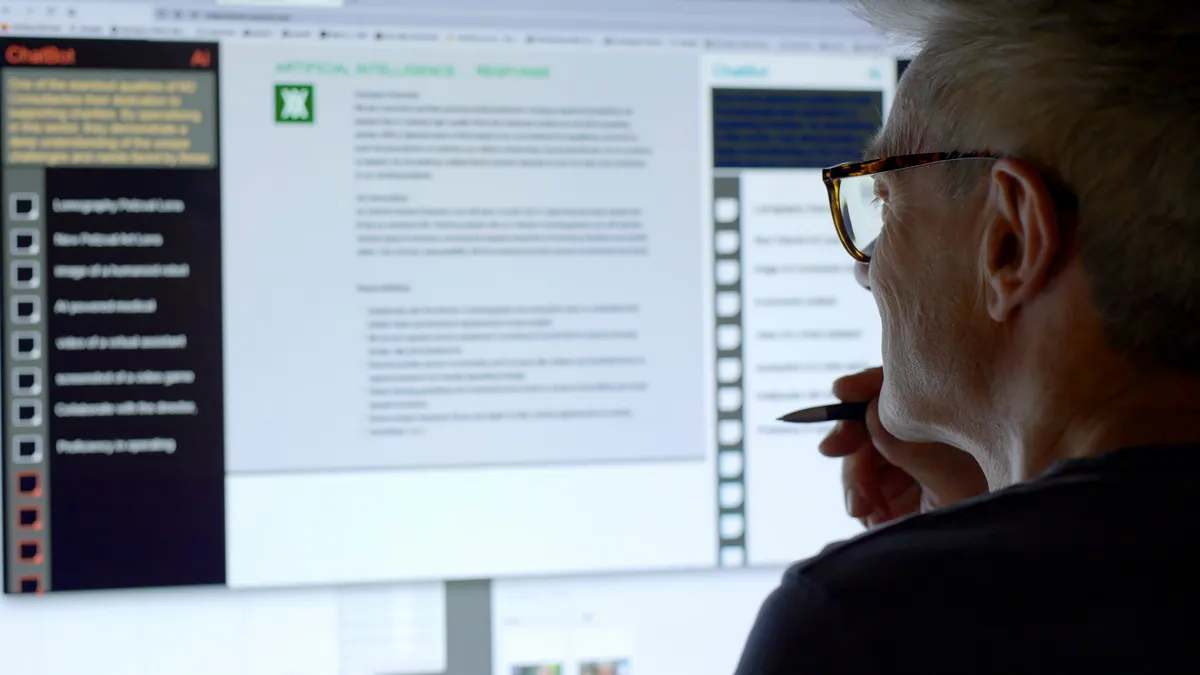Although Silicon Valley tech companies have made gains in overall workforce diversity, there has been less change at the managerial level, according to some employers' own reports. And when women and members of underrepresented groups aren't in leadership roles, a lack of targeted skills-based training and executive mentorship can continue to hold them back, according to Advancing Women in Product (AWIP).
Tech companies stand to benefit from diverse management, research shows. Those with high levels of racial diversity in both upper management and lower management — known as racial diversity congruence — achieved the greatest levels of productivity, according to a study published June 9 in the Academy of Management Journal. A 1% increase in racial diversity congruence in management increased a tech firm's productivity by $729 per employee, according to the study.
AWIP, a nonprofit organization founded in 2017, and Amazon Web Services believe product management training is crucial to advancement. To that end, the pair recently announced a series of four Coursera courses taught by full-time product management leaders drawing upon disciplines including engineering, business, artificial intelligence, design and leadership to train underserved technical and non-technical professionals with product management skills. The series is free to audit; a certificate requires a subscription, according to the announcement.
"Product management is increasingly critical in organizations of all sizes and sectors, but we need more diverse voices in these roles, creating customer experiences that meet the needs of diverse populations," Shravan Goli, chief product officer at Coursera, said in a statement.
Projects based on real industry tasks
Research has shown that the COVID-19 pandemic had a disproportionate economic effect on women and underrepresented populations. AWIP's series aims to prepare participants for real needs in the tech workforce brought on by the pandemic and beyond, according to Nancy Wang, CEO of AWIP and head of data protection services at Amazon Web Services.
When possible, the courses are taught using "real products made by real companies," Wang, the lead instructor, told HR Dive in an email, and they feature 19 projects based on real industry tasks. For example, participants are asked to draft an Amazon-style press release FAQ or a Google-style "objectives and key results goal-setting framework" for a product they are building, she said.
The courses are taught using a "see one, do one, teach one" method often used by medical schools, Wang said. In the first phase, participants are shown how to complete a task and multiple examples are provided. Second, participants apply what they've learned to a product that interests them. In the final "teach one" phase, participants provide feedback and also receive suggestions from a fellow learner on strengthening their work, Wang said.
"Learners who diligently complete all 19 projects, regardless of their background, will have completed the type of work entry-level project managers at big tech companies also perform, which might help level the playing field," Wang said. About a third of the specialization is dedicated to preparation for customary project management interview questions, she said; AWIP collected more than 200 interview questions asked by companies like Amazon, Facebook, Google and Microsoft and made them available to learners, as well.
Product management professionals at major Silicon Valley tech companies are many of the guest instructors, such as Sabrina Farmer, vice president of engineering site reliability, Google Products, and Wahab Owolabi, diversity business partner at Facebook.
"During each instructor segment, one of the questions I ask many of them is, 'what do you look for when hiring [project managers]?' Wang said. "So, we present learners with a wide range of views from many leaders across many companies, all of whom hire and promote project managers, through every part of our specialization."
Upon completion, learners will have created a portfolio of professional-level product management deliverables, and earned a certificate that demonstrates their accomplishment to potential employers, according to AWIP.






















